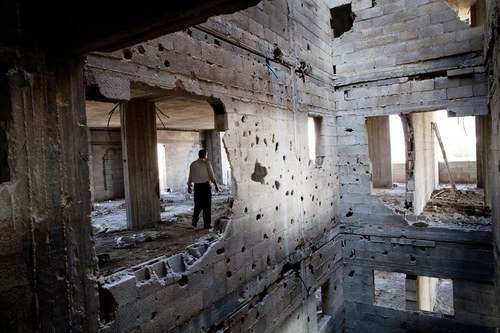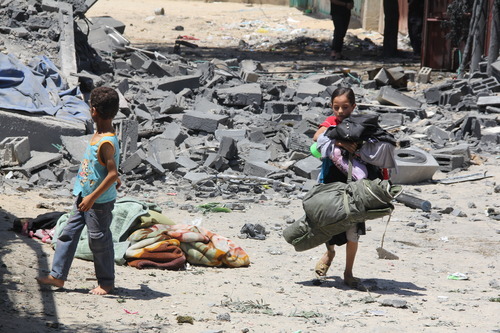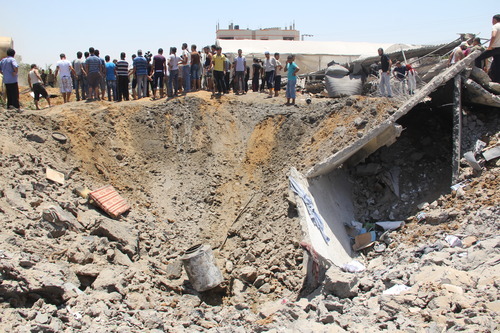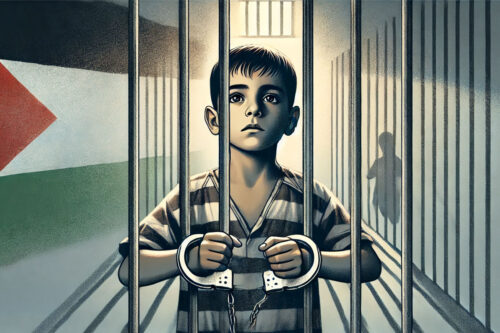As safe as houses? House demolitions, displacement and poverty among Palestinians

Both the Universal Declaration of Human Rights and the International Covenant on Economic, Social and Cultural Rights assert the right of all human beings to adequate shelter. This right has been systematically denied to Palestinians for decades in the form of small-scale acts of aggression and broader oppressive policies against the Palestinian population.
Forced in to Exile
The 1948 Nakba (Catastrophe) involved the expulsion of an estimated 900,000 Palestinians from their homes following the declaration of the state of Israel. It is estimated that over 500 towns and villages were quite literally wiped off the map: Arab populations were forcibly removed and the names of the towns they lived in were changed. The Nakba was a devastating process of physically removing Palestinians and erasing history.
In 1967 another 400,000 Palestinians were expelled from their homes after the ‘Six Day War’. It was at this time that Israel gained control of the West Bank and the Gaza Strip, displacing half the population of Palestine outside their borders and expropriating 80% of their land.
Today, there are approximately 5 million Palestinian refugees registered with UNRWA. Following the Nakba, many Palestinians fleeing their homes took their keys with them, hoping that they would one day return. To this day, Palestinian refugees are still fighting for the ‘Right to Return’ while they struggle to survive in inadequate living conditions in refugee camps across the occupied territories, Jordan, Lebanon and Syria.
Refugee Camps
Palestinian refugee camps have now been in place for 66 years, housing up to four generations of refugee families. The living conditions in the camps are beyond inadequate. The shelters were initially designed as a temporary measure and were built with this in mind. After decades of no improvement to the infrastructure, Palestinians are now forced to cope with piles of waste and open sewage running through the camps. Inevitably, these conditions increase the risk of disease among a population also deprived from accessing adequate healthcare.
Exasperated by the recent violence in Syria, the refugee camps across Jordan and Lebanon also suffer from extreme overcrowding. With the population exploding despite the size of the camps remaining the same, refugees are forced to build on top of what already exists. The precarious infrastructure in which refugees live creates an extremely unsafe environment for an ever increasing population. The psychological impact this has on Palestinian families is immeasurable, with simple luxuries, as small as enjoying a degree of privacy to work or study, denied to them on a daily basis. With the conditions of the shelters continuing to deteriorate with little prospect of improvement, the chance for Palestinian refugees to gain the basic right to safe, adequate shelter is becoming increasingly unlikely.
War on Homes

The recent assault on Gaza this year resulted in the destruction and damage of around 120,000 homes. Despite this devastating figure, the trauma experienced by families in Gaza as a result of the assault is nothing new. Gazans were subjected to similar assaults in 2008 and 2012, and the region in general has to deal with intermittent attacks on a regular basis.
There are approximately 1.2 million internally displaced refugees registered in Gaza and 750,000 in the West Bank. House demolitions in the West Bank are commonplace and in Area C and East Jerusalem, under the authority of Israel, the reason provided for the demolition of homes is the lack of building permits on the part of Palestinians. This is despite the fact that permits are close to impossible to obtain and Palestinians usually have no choice but to build “illegally”[fusion_builder_container hundred_percent=”yes” overflow=”visible”][fusion_builder_row][fusion_builder_column type=”1_1″ background_position=”left top” background_color=”” border_size=”” border_color=”” border_style=”solid” spacing=”yes” background_image=”” background_repeat=”no-repeat” padding=”” margin_top=”0px” margin_bottom=”0px” class=”” id=”” animation_type=”” animation_speed=”0.3″ animation_direction=”left” hide_on_mobile=”no” center_content=”no” min_height=”none”][i]. Additionally, military operations in general make up about 47% of demolitions, justified by the need to clear land, achieve a specific military goal or kill specific people under Israeli suspicion[ii].
Punitive demolitions involve harming the relatives of Palestinians accused of violence and is achieved through the destruction of their homes, while being justified as a method to deter terrorism. Vulnerable groups are usually the most affected, including women, the elderly and children. This form of punishment contravenes international human rights law and goes far beyond the denial of the right to housing; sadly, Palestinians’ lack of basic rights exists in relation to broader injustices that affect all aspects of survival.
Restrictions on reconstruction

The blockade on Gaza restricts the flow of goods and people in and out of the region, severely affecting efforts to reconstruct the thousands of homes demolished as a result of Israeli attacks. Building materials are prevented from entering the region as a result of ‘security concerns’, leaving truckloads of materials outside of the Gaza Strip awaiting entry.
In the aftermath of “Operation Protective Edge” it has been estimated that the reconstruction of Gaza could take more than 20 years. Before the attacks began, the future prospects for Gaza were already slim, with UNRWA predicting that the region would be unliveable by 2020. However many commentators who have witnessed the current destruction of homes for themselves, make the sobering observation that living conditions in Gaza are already unsustainable. Until the siege on Gaza is lifted, aid agencies in the region are forced to sacrifice long term development for short term delivery of emergency aid.
The denial of the right to adequate housing faced by Palestinians is a result of broader political motives in the region. It is woven in to the cycle of destruction and reconstruction in Gaza, the systematic destruction of homes in the West Bank and the denial of rights of Palestinian refugees in Lebanon and Jordan. Until this comes to an end, the status quo of unremitting Palestinian dispossession will continue to persevere.
To provide shelter support to Palestinians this winter, call us on 020 8961 9993 or visit www.interpal.org
[/fusion_builder_column][/fusion_builder_row][/fusion_builder_container]
Calculate your Zakat
Confused about how to calculate your Zakat? Try our simple-to-use calculator


![Fighters from Israel's pre-state militia occupying the village of Deir Yassin, April 1948 [IDF archive / Wikimedia]](http://www.interpal.org/wp-content/uploads/2025/04/Jewish_militias_in_the_village_of_Deir_Yassin_April_1948_cropped_and_edited-e1745166391491-500x333.jpg)
![A Palestine protest in London on May 15th 2021 [Ehimetalor Akhere Unuabona / Unsplash]](http://www.interpal.org/wp-content/uploads/2024/08/ehimetalor-akhere-unuabona-33W7GNRkUA0-unsplash-500x333.jpg)
